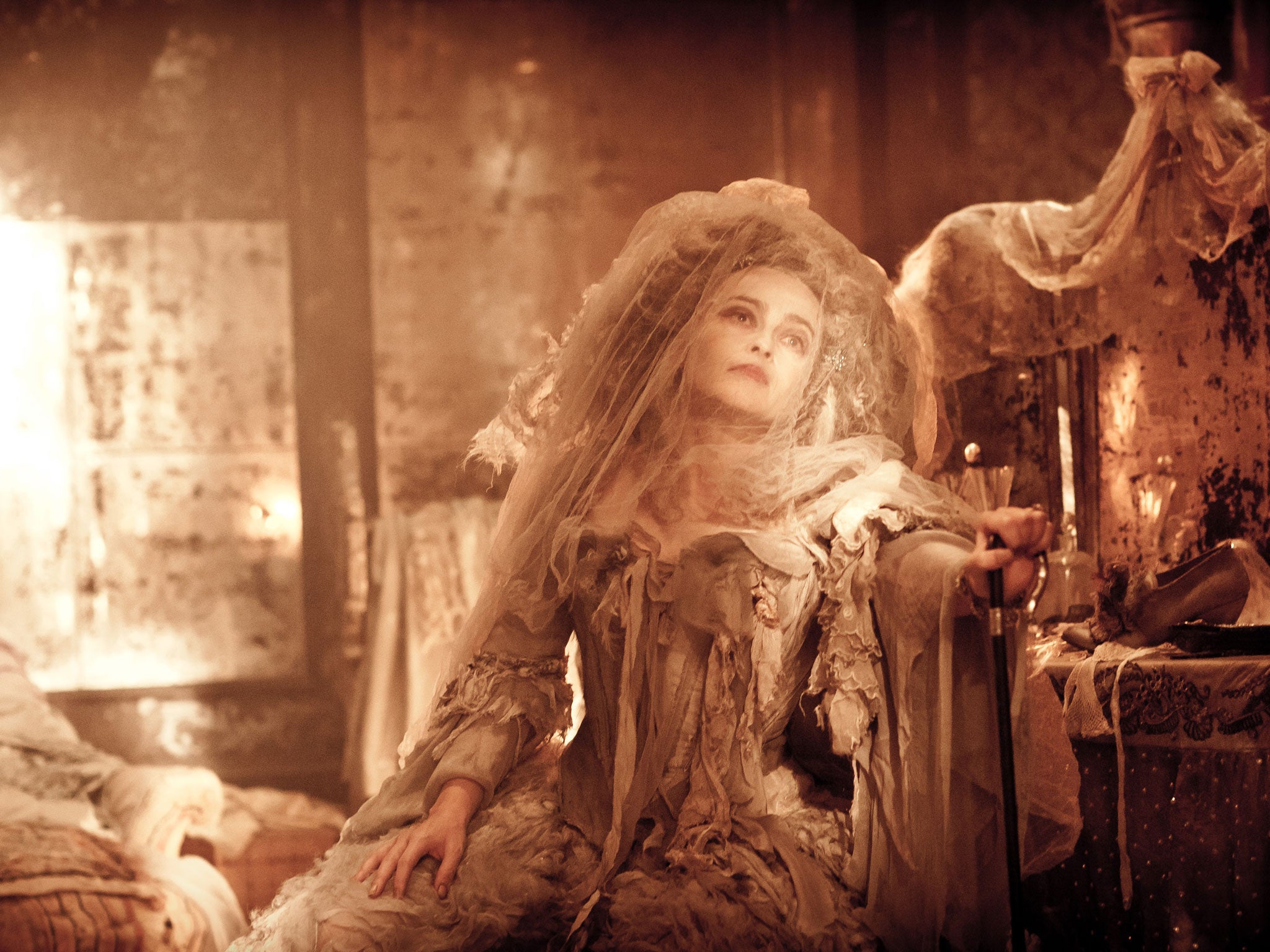IoS film review 2: Great Expectations Sightseers The Hunt
Mike Newell's 'Great Expectations' crams in the detail, but blink and you'll miss the drama

The new adaptation of Great Expectations is something of a Harry Potter reunion. It's directed by Mike Newell, who made Harry Potter and the Goblet of Fire, and in key roles it has four of the regulars from the series. First, there's a feral Ralph Fiennes as the escaped convict, Magwitch, who seizes upon the young Pip (Toby Irvine) on the Kentish marshes. Then there's Helena Bonham Carter, doing her usual queenly wafting as Miss Havisham, and looking a lot more curvaceous than the walking corpse described by Dickens. When grown Pip (played by Toby's big brother, Jeremy Irvine from War Horse) is plonked into London's high society, there's Robbie Coltrane as Jaggers the lawyer, while Jessie Cave (Ron Weasley's pre-Hermione girlfriend) plays Biddy, who is left behind in Kent.
Those aren't the only Hogwarts connections, though. More importantly, Great Expectations follows the trend set by the Harry Potter franchise of packing in as much of the source novel as it can, even if that means that dozens of scenes and characters get nothing more than a blink-and-you'll-miss-it appearance. Unlike the directors of the recent, more daring deconstructions of Jane Eyre and Wuthering Heights, Newell and his screenwriter, David Nicholls (One Day), have gone for a literal, scene-by-scene translation of the book, with very little of the streamlining undertaken by David Lean for the classic 1946 version. It's a tactic that pays dividends for a while, in that it's a pleasure to see so many of Dickens's characters brought to richly coloured life. But, towards the end, you might as well be reading a synopsis. Fiennes and Coltrane take it in turns to recite pages of exposition, and there's a new twist or flashback every 30 seconds, with no time in between to absorb how it might affect Pip or Estella, his imperious object of desire (Holliday Grainger). It's ironic that while the last Harry Potter novel got two films to itself, a novel that really deserves that treatment has to squeeze itself into one.
With his first two films, Ben Wheatley established himself as one of our most exciting directors, especially if you weigh up how much entertainment value you get per pound of the budget. His trick for turning lead into gold is to distil glamorous, cinematic sub-genres into the most mundane and Office-like of British containers, and then add a dash of spooky surrealism. So far, he's worked his alchemy on the crime-family drama (Down Terrace) and the hitman thriller (Kill List), and now, with Sightseers, he's taken on the Bonnie and Clyde-style road movie. Typically, his loved-up serial killers, Alice Lowe and Steve Oram, aren't burning rubber through the Mojave desert in an open-topped Chevy, they're pootling around the north of England on a caravanning holiday. Bundled up in cagoules, and bickering in their Midlands accents, they tramp through drizzly woods, drizzly abbeys and drizzly tram museums, occasionally murdering people who get on their nerves.
The juxtaposition of the anti-heroes' cosy ordinariness and their tendency to bash strangers over the head with a rock can be very funny at times, so Sightseers should be Wheatley's most commercially successful release. But it's also his weakest. Lowe and Oram, who wrote the screenplay, first performed as these characters in sketch shows, and Sightseers can seem more like a long, rambling sketch than a fully formed feature film, without the plotting or complexity to avoid the aimless dreariness of a genuine rainy holiday. Still, like Michael Winterbottom's The Trip, its views of the North's phenomenal scenery should encourage a few viewers to take a British staycation, even if they risk encountering the odd downpour, and a pair of homicidal maniacs.
Fourteen years on from Festen, Thomas Vinterberg returns with The Hunt, a parable about a nursery teacher (Mads Mikkelson) in an apparently close-knit rural Danish community who's wrongly accused of abusing his young charges. Mikkelson is a past master at portraying wretched discomfort, but not every element in the film is so convincing. No one, for instance, stops to ask how, when and where he is supposed to have mistreated so many children. Vinterberg is in such haste to lampoon the amateurism of the nursery staff and the myopia of the parents that The Hunt slides from a sober drama to a satirical comedy, losing some of its unsettling power along the way.
Subscribe to Independent Premium to bookmark this article
Want to bookmark your favourite articles and stories to read or reference later? Start your Independent Premium subscription today.

Join our commenting forum
Join thought-provoking conversations, follow other Independent readers and see their replies